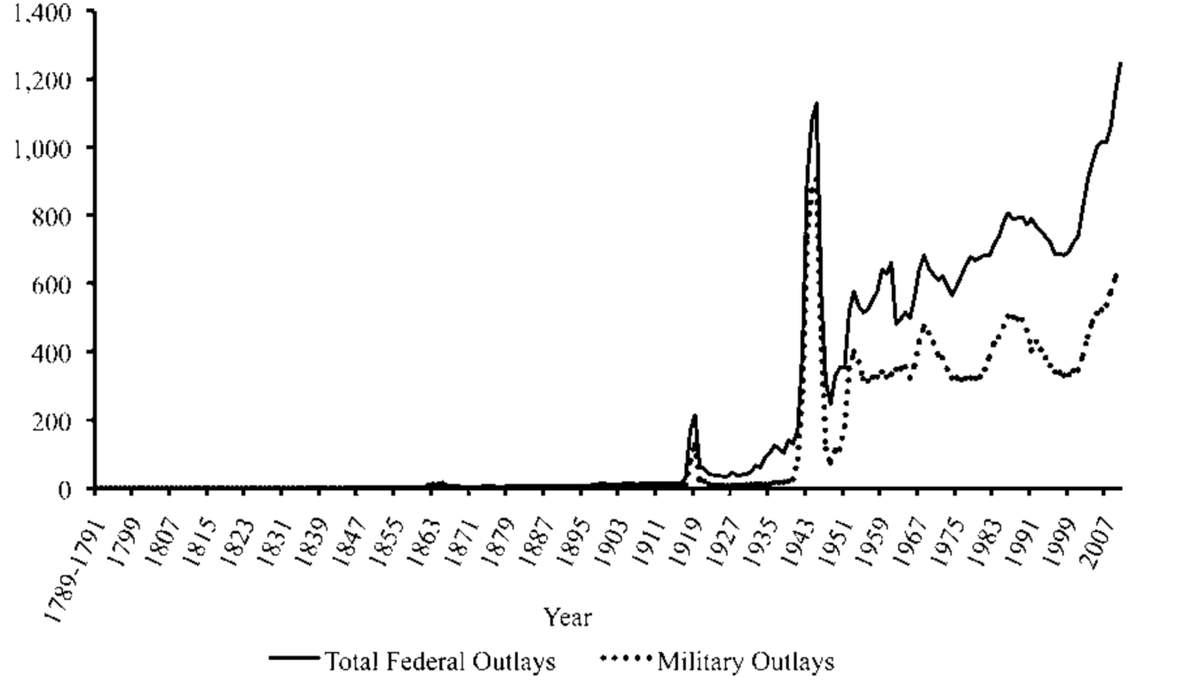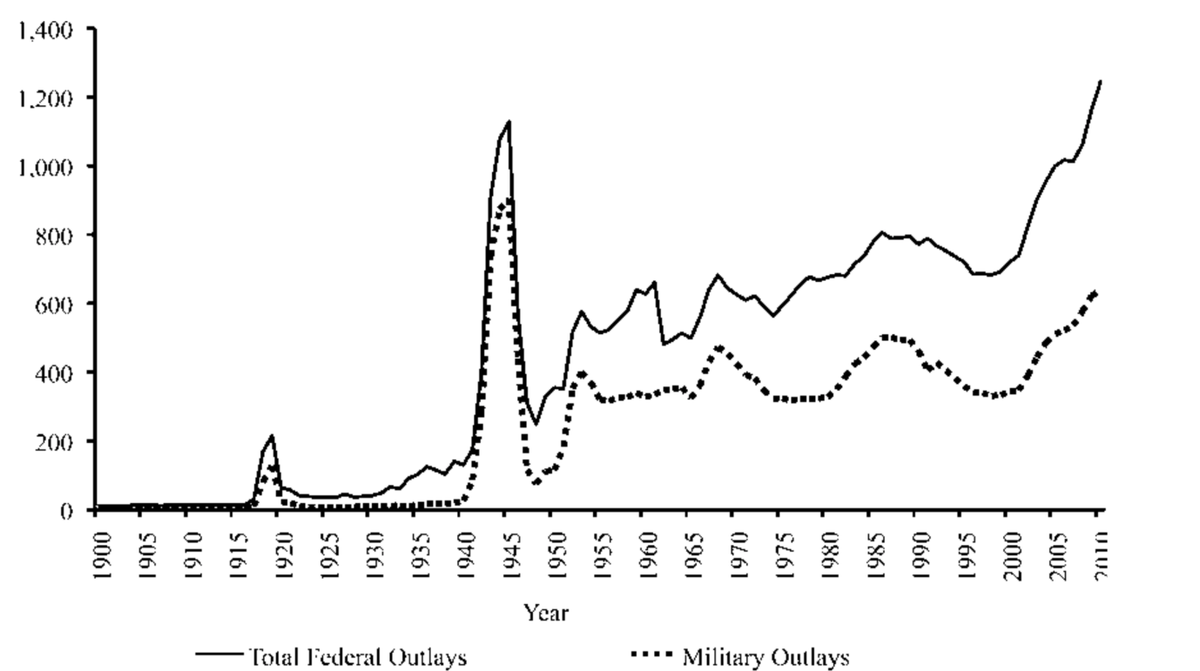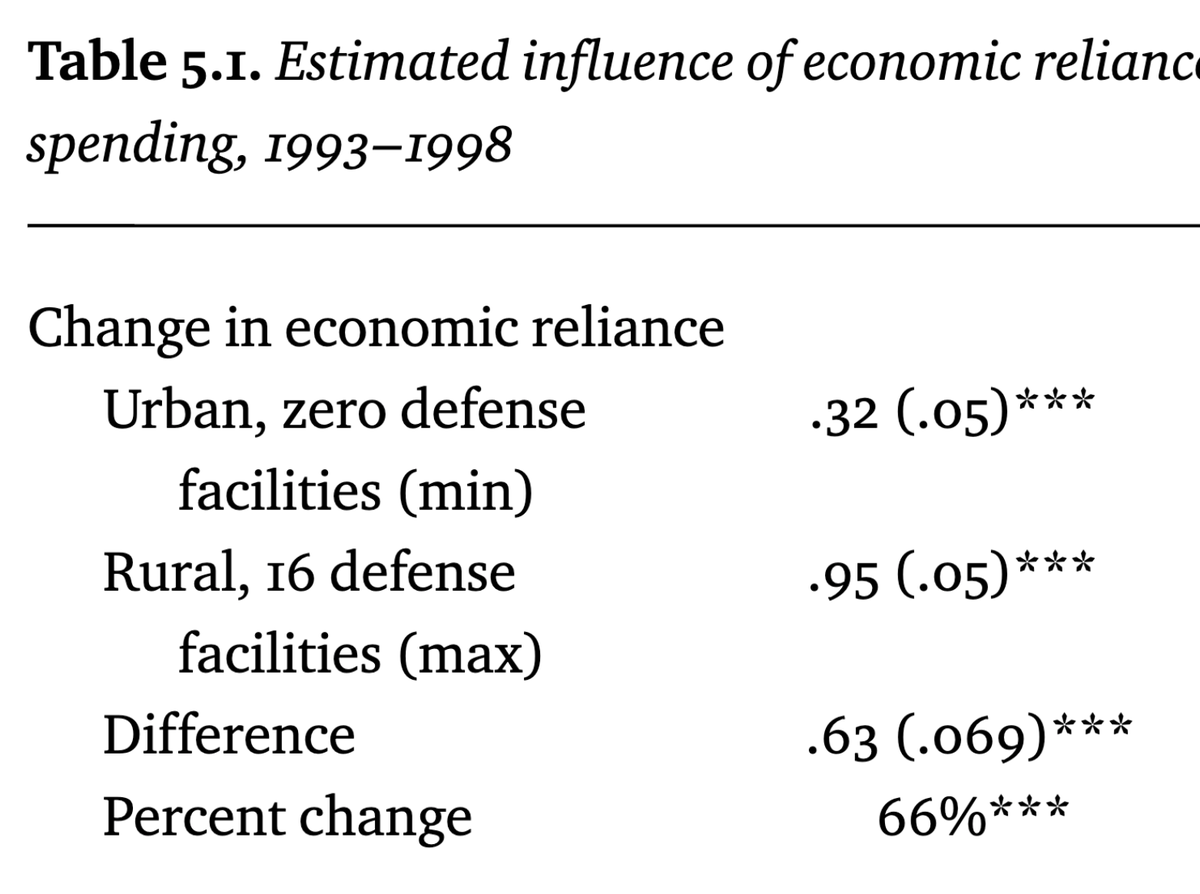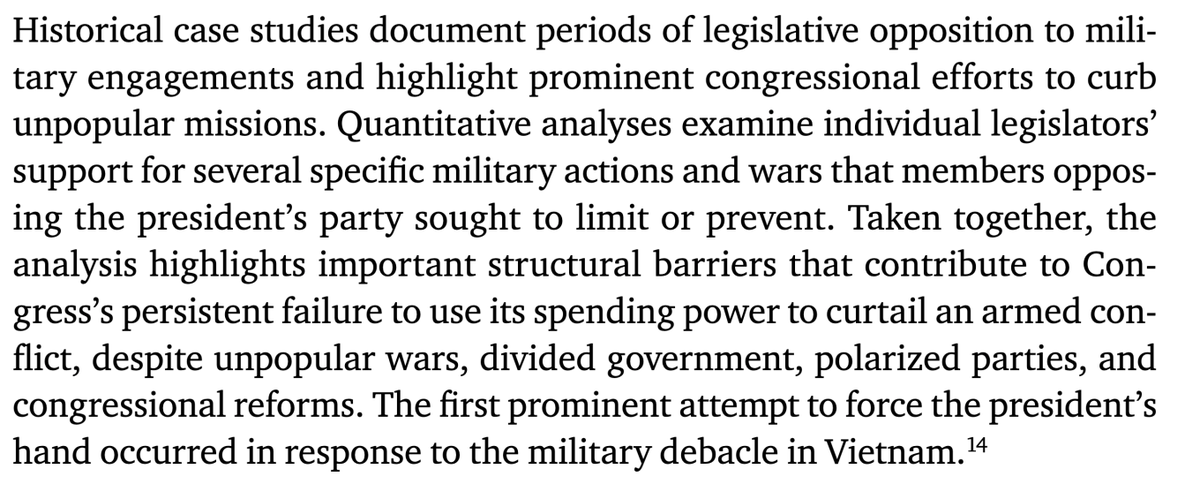The tl;dr of The American Warfare State is that Ike's analysis was basically right on the money. The unprecedented WW II military buildup created a lot of communities dependent on military spending, which in turned made for a large supportive constituency in Congress https://twitter.com/warren__terra/status/1281684678525636608
Scoop Jackson was Boeing's senator in part for ideological reasons, but also partly because a major reduction in military spending could have meant what happened to Youngstown and Toldeo happening to Everett and Renton.
One of the key insights of the book is that Madison's theory that the best way to prevent a permanent standing army was to put the appropriations power in Congress actually worked quite well until WWII. After wars ended temporary increases in military spending were re-allocated.
WW II changed things dramatically because 1)the mobilization was so much larger and 2)under the New Deal the federal government sought to use military spending to help struggling communities. Military spending meant middle-class jobs that were otherwise scarce.
The creation of military spending-dependent towns had a huge political impact. If the Brooklyn Navy Yard stops making boats it can be put to other uses. But if the McDonnell Douglas plant outside of Syracuse shuts down it's probably just going to sit idle.
Not surprisingly, members of Congress whose communities are dependent on military spending are more likely to support military spending and more likely to support wars
[One can tell a similar story about prisons, which in fact is Thorpe's current project.]
Anyway, very strongly recommended if you're interested in the subject. https://press.uchicago.edu/ucp/books/book/chicago/A/bo17607479.html

 Read on Twitter
Read on Twitter





